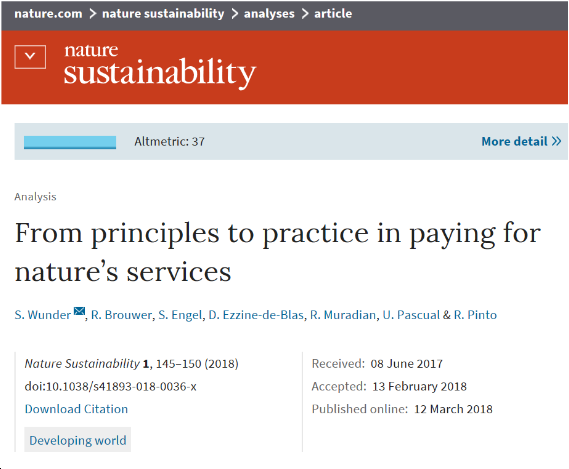February 15, 2018
Published by Maria Jose Sanz BC3Research at February 15, 2018
During 12-14th of February, the GFOI R&D Coordination component, the GOFC-GOLD Land Cover Office, and BC3 Basque Center for Climate Change organized the 3rd Expert workshop on lessons learned from Accuracy Assessments in the context of REDD+: Uncertainties of emission factors and biomass maps in Leioa.
March 5, 2018
Published by Anil Markandya Mikel González-Eguino Iñaki Arto Jon Sampedro cristina.pizarro at March 5, 2018
Categories
Although the co-benefits from addressing problems related to both climate change and air pollution have been recognised, there is not much evidence comparing the mitigation costs and economic benefits of air pollution reduction for alternative approaches to meeting greenhouse gas targets. We analysed the extent to which health co-benefits would compensate the mitigation cost of achieving the targets of the Paris climate agreement (2°C and 1·5°C) under different scenarios in which the emissions abatement effort is shared between countries in accordance with three established equity criteria.
March 13, 2018
Published by BC3Research David Moreno at March 13, 2018
Given that few ecosystems on the Earth have been unaffected by humans, restoring them holds great promise for stemming the biodiversity crisis and ensuring ecosystem services are provided to humanity. Nonetheless, few studies have documented the recovery of ecosystems globally or the rates at which ecosystems recover.
March 19, 2018
Published by BC3Research Unai Pascual at March 19, 2018
Categories
Payments for Environmental Services (PES) constitute an innovative economic intervention to counteract the global loss of biodiversity and ecosystem functions. In theory, some appealing features should enable PES to perform well in achieving conservation and welfare goals. In practice, outcomes depend on the interplay between context, design and implementation. Inspecting a new global dataset, we find that some PES design principles pre-identified in the social-science literature as desirable, such as spatial targeting and payment differentiation, are only partially being applied in practice.




